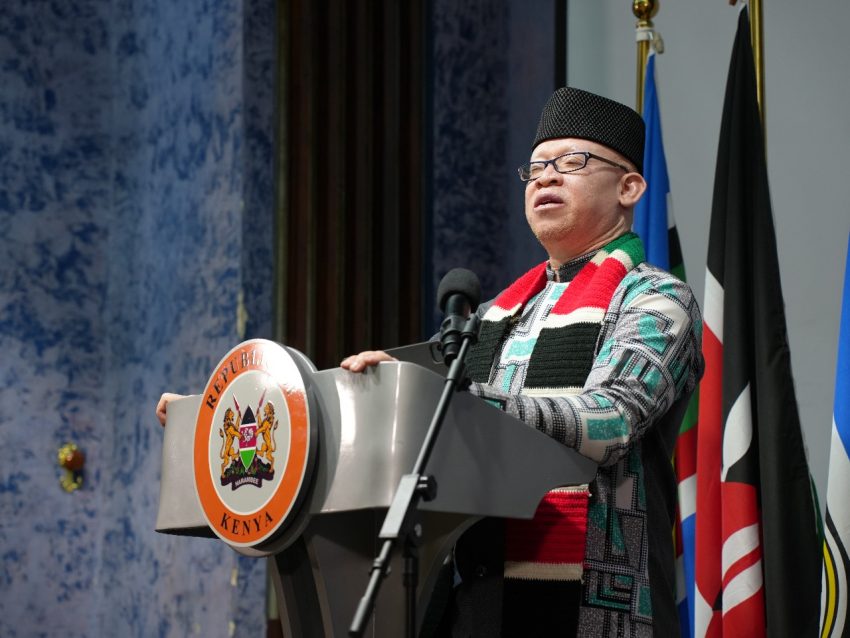The Government of Kenya has firmly reiterated its position as a neutral peace broker in the ongoing Sudanese conflict, dispelling recent allegations of complicity and partisanship in the formation of a parallel government by the Rapid Support Forces (RSF) on Kenyan soil.
Speaking during a press briefing, a senior government official addressed concerns raised by media outlets regarding Kenya’s involvement in Sudanese affairs. The official clarified that Kenya remains committed to a peaceful resolution in Sudan and maintains a strictly diplomatic and humanitarian approach.
Understanding the Sudan Crisis
The Sudanese conflict, which has escalated into a full-scale civil war since 2023, is rooted in decades of economic mismanagement and political instability. The fall of President Omar al-Bashir in 2019 ushered in a transitional military council, co-chaired by General Abdel Fattah al-Burhan and Lieutenant General Mohamed “Hemedt” Dagalo. However, a military coup in 2021 derailed the transition, leading to the resignation of civilian Prime Minister Abdullah Hamdok in 2022.
Since then, Sudan has been engulfed in a violent power struggle between Burhan’s Sudanese Armed Forces (SAF) and Hemedt’s RSF, resulting in the deaths of thousands and the displacement of over 8 million people. As of March 2025, the RSF maintains control over much of Darfur and Kordofan, while SAF holds key territories in the east and along the Red Sea.
Kenya’s Peace Diplomacy
Kenya’s historical role as a regional peacebuilder continues under President William Ruto’s administration. The country has been instrumental in facilitating peace talks, most notably through the Intergovernmental Authority on Development (IGAD) process. President Ruto has personally chaired sessions of the IGAD Quartet and hosted both Burhan and Hemedt in Nairobi to mediate ceasefire discussions.
In February 2025, the Sudan Founding Alliance—which includes the RSF—signed the Sudan Founding Charter in Nairobi. A transitional charter followed in March, and by April, the RSF had announced a Government of Peace and Unity, sparking concern and controversy about Kenya’s neutrality.
Kenyan officials, however, maintain that hosting such diplomatic engagements is standard in peacebuilding processes and does not equate to endorsement or bias. “We are non-aligned, non-partisan, and supportive only of a Sudanese-led solution,” the official stated.
Allegations of Gold Trade and Military Involvement
In a heated Q&A session, journalists questioned Kenya’s potential commercial ties with warring factions, particularly in the gold trade. Rumors have circulated regarding Kenyan military support and logistical ties to the RSF. Officials have strongly denied these claims, calling them “unfounded propaganda” meant to discredit Kenya’s role in the peace process.
“Kenya trades with its neighbors, as is normal in regional cooperation,” the official responded. “But no weapons or military aid have been provided to any side in the Sudanese conflict.”
Humanitarian Response and the Ushirika Model
Kenya has pledged $2 million towards humanitarian assistance for Sudan, with contributions made at global conferences held in Paris, Addis Ababa, and London. The country has also opened its borders to refugees and implemented the innovative Ushirika Plan, now being studied globally as a model for refugee integration and rights protection. A recent conference in Zambia spotlighted Ushirika as a framework for dignified humanitarian response.
The Sudan conflict has created a dire humanitarian crisis, with 18 million people experiencing food insecurity and 11 million requiring urgent medical aid due to outbreaks of cholera, measles, and dengue fever.
Domestic Development and Child Welfare
Beyond regional diplomacy, the government highlighted progress on domestic initiatives including the Mwache Dam project, which is key to irrigating one million acres of farmland. The dam, alongside ongoing work at Bura Irrigation Scheme, aims to significantly reduce Kenya’s food import bill—currently at KSh 137 billion.
In commemoration of the Day of the African Child, the official emphasized the government’s commitment to children’s welfare through improved access to healthcare via the Social Health Authority (SHA) and education reforms such as the rollout of the National Education Management Information System (NEMIS) and distribution of 9.9 million textbooks.
Conclusion
Kenya has positioned itself as a key regional player committed to diplomacy, humanitarianism, and regional stability. While criticisms and allegations continue to surface, the government insists that it will remain focused on peacebuilding efforts, both at home and abroad, guided by the principles of neutrality, dialogue, and respect for sovereignty.
“Kenya’s only business in Sudan is peace,” the statement concluded. “We will continue to uphold that mandate.




